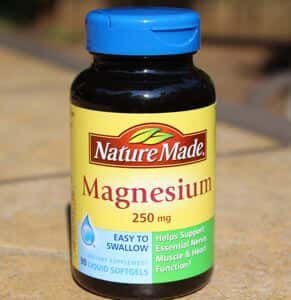
Depression is common, possibly the most common mental illness. According to the CDC, this potentially crippling condition affects almost 8 percent of Americans over 12 years of age (CDC, MMWR, Jan. 6, 2012). Antidepressants can help to fight depression, but they also have some very unpleasant side effects. Are there nondrug approaches that can help?
Finding Alternative Ways to Fight Depression:
Q. I have taken antidepressants my entire adult life, but wanted to get off them. I weaned myself off about nine months ago.
I have started moving more, and that has helped a lot. I have recently started taking magnesium and that has made a noticeable difference in my mood. It is as if that dull constant sadness has lifted. Others may want to know about this way to fight depression.
Magnesium Against Depression:
A. Physical activity is known to help counteract depression. It can be helpful both for children (Journal of School Nursing, March 29, 2016) and older men (Journal of Frailty & Aging, March, 2016). Both supervised exercise and home-based exercise are as effective as the antidepressant sertraline in treating depression in people with heart disease (Psychosomatic Medicine, Feb. 9, 2016).
The effects of magnesium may not be as widely recognized, but studies have shown that people who get too little magnesium are more susceptible to depression (Journal of Affective Disorders, March 15, 2016).
We discuss other nondrug approaches along with the pros and cons of various antidepressants in our Guide to Dealing with Depression.
People who want to try magnesium should start with a relatively low dose because doses above 300 mg may result in diarrhea for some individuals. People with reduced kidney function should not take magnesium supplements at all.

